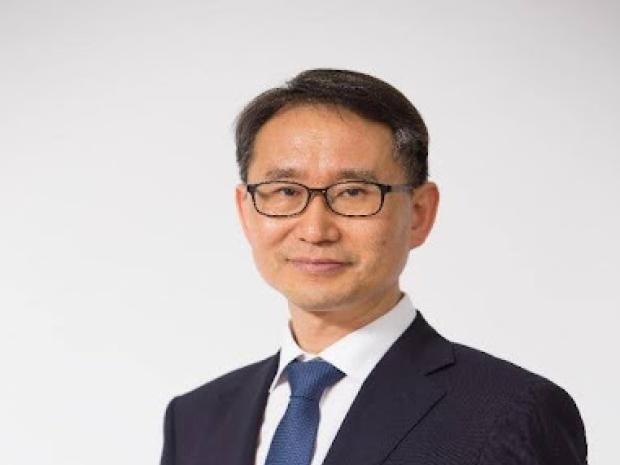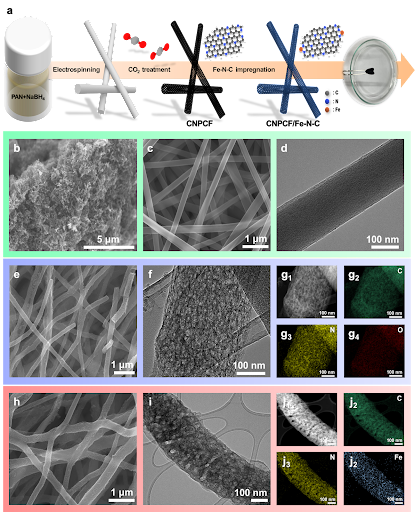Mesoporous Carbon Host and Nanofiber Interlayer Derived from CO2 for Inhibiting Shuttle Behaviors in Lithium-Sulfur Batteries

Speaker
Jae W. Lee
Professor of Chemical & Biomolecular Engineering
Korean Advanced Institute of Sci and Tech (KAIST)
Abstract
Mesoporous Carbon Host and Nanofiber Interlayer Derived from CO2 for Inhibiting Shuttle Behaviors in Lithium-Sulfur Batteries
We have developed methodologies for the thermal reduction from carbon dioxide (CO2) to various carbon materials such as porous carbon, graphene and CNT at ambient pressure. This talk mainly concern CO2 conversion to hierarchical porous carbon and paper-form interlayer for designing high-performance lithium-sulfur batteries. The hierarchical porous carbon was synthesized by reducing CO2 in the presence of NaBH4 with a nano-template of CaCO3 particles and it has hierarchical porosity with a surface area of 900 to 1200 m2/g and a pore volume around 3 cm3/g. This high porosity can afford to accommodate a high amount of active sulfur material in the cathode. The sheet interlayer was prepared by electrospinning a mixture of PAN (95wt%) + NaBH4 (5wt%) and the subsequent CO2 conversion leads to a mixed paper form of porous carbon and graphitic layer. Dispersing Fe-based molecular catalysts and sulfur-based active materials into the porous carbon electrode can significantly suppress the shuttle phenomenon based on superior chemical interactions. We used single atom catalysts with coordination bonds in form of Fe-N2 and Fe-N4, and obtained significantly higher electrochemical performance compared to bare carbon materials. DFT simulations elucidated the thermodynamic effects of Fe-N4 and Fe-N2 in terms of reducing the energy change in the redox reaction step and the barrier energy required for lithium ion diffusion. At the end of this talk, CO2 conversion to crystalline carbon materials (CNT, Graphene, etc) will be also introduced for electrochemical conversion and energy storage.

Bio
Jae Lee is a Professor of Chemical & Biomolecular Eng. at KAIST. He is now serving as the Director of both National ERC Center and Lotte Chemical-KAIST Carbon Neutrality Research Center. Prior to joining KAIST, he worked as a Full Professor in Chem. Eng. Department at the City College of New York. He is an AIChE fellow and a member of Korean NAE. His main research interests are CO2 conversion to chemicals and valuable carbon materials, low-carbon H2 production via process intensification, and energy systems. B.S./M.S. Chemical Eng., SNU (1990/1992); Ph.D. Chemical Eng., CMU (2000). Alexander von Humboldt Fellow (2000-2001, Aachen Technical University).

